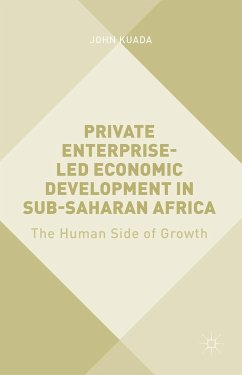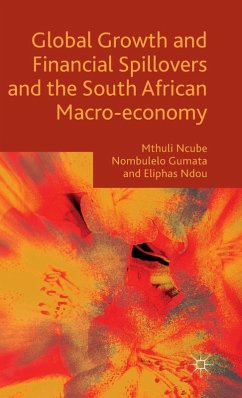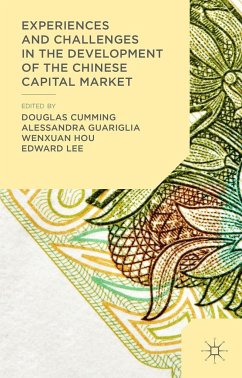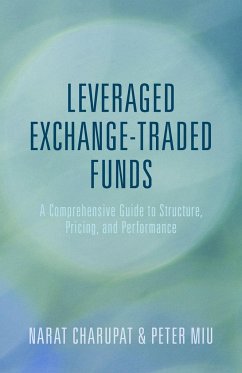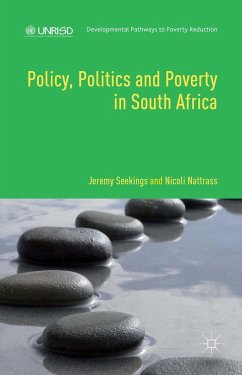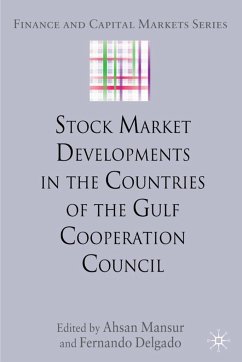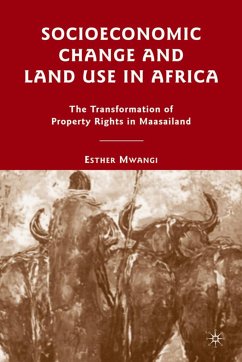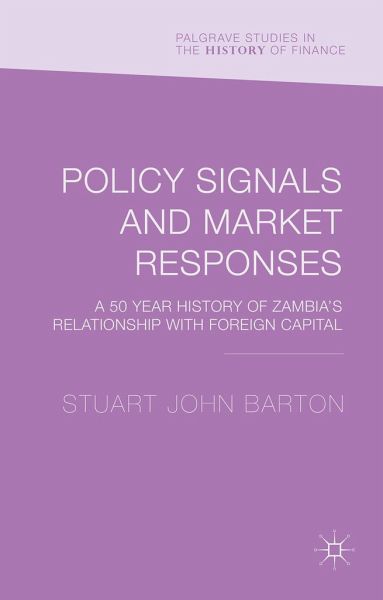
Policy Signals and Market Responses
A 50 Year History of Zambia's Relationship with Foreign Capital

PAYBACK Punkte
42 °P sammeln!
The study presents archival evidence to show how President Kaunda raised political and economic exclusivity in Zambia in the early years of Zambia's independence, and how this retarded capital investment. Despite formal reforms and a new government, this institutional mechanism still dominates and constrains Zambia's political economy today.





